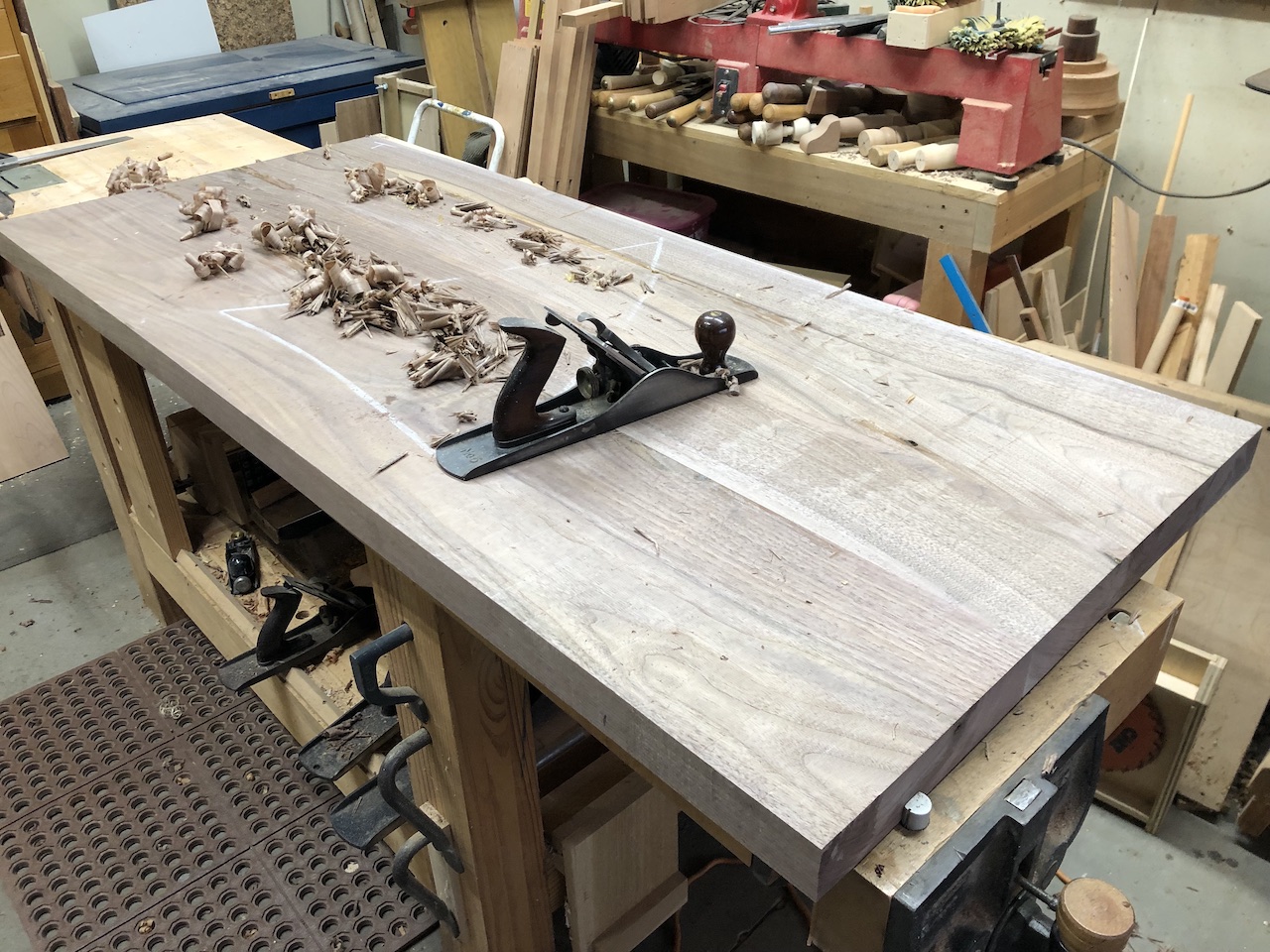09-24-2019, 08:05 PM
A friend commissioned me to build a large desk for him and his wife. They wanted a black pipe base and a thick top. I brought them several wood samples and they decided on walnut even though it was $8.5 a bft for 8/4 which was over twice the cost of other woods. The tops are 60 x 26 x 2 and 72 x 26 x 2.
Most of the milling was done with power jointer and planer, but hand planes did a very important job. My tailed jointer will make square edge, but not what I would consider a glue ready surface.
Wartime #7


After glue up, The Stanley #5 and Bedrock #606 flattened a top in a matter of a few minutes. This is the 60" top. I started off with the #5, but quickly switch over to the 606 as the larger size helps out.


I still have the longer top to flatten. For me it is faster to get the glues up close, then flatten with hand planes, then fretting over a perfect glue up.
Lots of folks would go to a sander of some sort to flatten a large panel, but I am not sure how they can keep a panel or top flat that way.
Oh, and it's nice having a long bench that can handle these big pieces. Tip for bench builders, go for length over width.
Most of the milling was done with power jointer and planer, but hand planes did a very important job. My tailed jointer will make square edge, but not what I would consider a glue ready surface.
Wartime #7

After glue up, The Stanley #5 and Bedrock #606 flattened a top in a matter of a few minutes. This is the 60" top. I started off with the #5, but quickly switch over to the 606 as the larger size helps out.

I still have the longer top to flatten. For me it is faster to get the glues up close, then flatten with hand planes, then fretting over a perfect glue up.
Lots of folks would go to a sander of some sort to flatten a large panel, but I am not sure how they can keep a panel or top flat that way.
Oh, and it's nice having a long bench that can handle these big pieces. Tip for bench builders, go for length over width.




